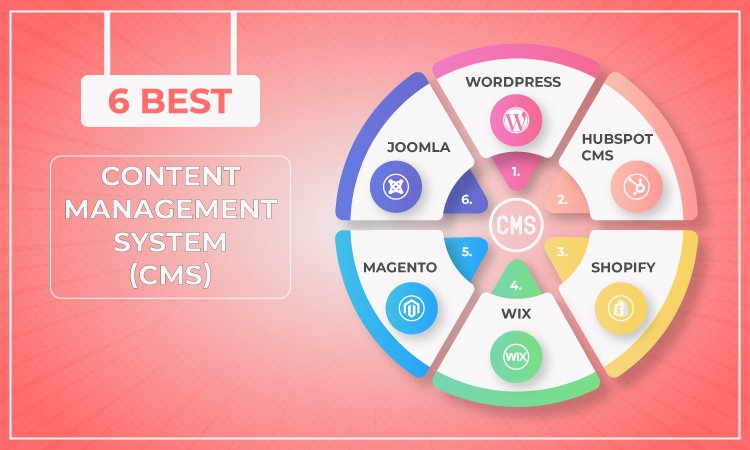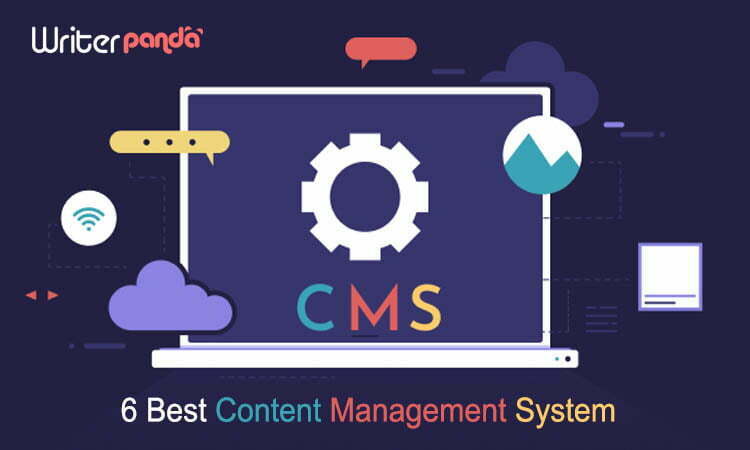Every CMS platform doesn’t come with a tool for search engine optimization (SEO). It’s important to find out the best CMS for SEO. If you want to excel at SEO and get ranked in search engines then this article is merely for you. I have enlisted the 6 best CMS platforms for SEO and the points to look for before choosing an SEO-friendly CMS.
Importance of integration of SEO into CMS
Besides your products and services offering, probably content is the most crucial thing on your website. No matter how much your website content is well-written, if it does not have SEO-optimized keywords it’s worthless. People will not read your content unless they can find it in the first place, and with billions of indexed pages, it’s a challenging task. The only way to drive the maximum organic search engine traffic to your website is to implement SEO procedures.
A content management system (CMS) will assist you in doing things accurately to ensure a steady flow of content. Keeping your main focus on SEO in my mind, I have evaluated the 6 best CMS platforms for SEO.
But wait…
You might be thinking about the characteristics that you should look for before choosing a CMS for SEO.
Let me give you a quick review of these features.
Top-notch Qualities of the best CMS for SEO
Best CMS platforms provide you with great benefits but they often lag behind in SEO. Some of them only concentrate on your website structure while others enhance your potential to optimize content. If SEO is your main concern for your business website, you need to consider these must-have SEO features. Afterward, I’ll analyze the best CMS for SEO.
-
Customizable Web pages & Optimization
The core feature of the best CMS is the ability to build SEO-friendly pages and formats along with web design and content management. While developing your website, look for a tool that can produce HTML pages. It enables search engines to quickly crawl or to produce appropriate permalinks for SEO.
CMS should be able to alter the title, meta-description, and text for images. You can put target keywords which enable the user to find out about your products easily.
-
CMS integrated with SEO tools
It’s also beneficial if the CMS platform provides additional tools and features to improve the SEO for your website. While some systems offer their own tools, others give you access to third-party capabilities that you can use.
-
SEO Customer support
It is important to give full support to the clients especially if they don’t have an idea about SEO. CSM platform that provides free training and additional help is plus point and will make you ponder on other things.
Our Top 6 picks for CMS for SEO

There are many great CMS platforms, but if you’re searching for one that specializes in SEO, here are the 6 best to consider. Each of these has both advantages and disadvantages.
Show More... Let’s explore.. WordPress is one of the top web hosts with SEO-friendly platform. It is specifically made for the task of SEO that creates HTML pages and permalinks. Due to which, search engines can identify and read the web pages easily. Besides this, WordPress manages the administrative tasks so you can focus on your content with free integrations of SEO tools. It enables you to add titles, image alt-text, Meta descriptions, headings, and custom URLs in your posts and pages. However, WordPress has some drawbacks too. For an easy understanding, I have jotted down both the pros and cons of WordPress which are as under: Hubspot CMS is user-friendly software suitable for SEO beginners because it manages the pages and offers personalized training. To maintain your content library, you can take advice from Hubspot that will help you in updating site and improving search engines ranking. Moreover, higher ranking requires hard work and experiments, so having SEO experts is beneficial to assist you along the process. Have a look at pros and cons of Hubspot below. Shopify is the popular platform to built ecommerce websites. It has built-in ecommerce tool and made for individuals, simple and small websites. Shopify helps you to use target keywords, add all text media, optimize your website structure, create redirects and XML sitemaps, and manage canonical URLs. In addition to this, it manages to design ns, web hosting and SEO. The pros and cons of Shopify are listed below: Wix CMS is popular mostly among small-scale business websites, freelancers, and sole proprietors. It helps in building quick and simple websites with an easy drag-and-drop method. The main resource of SEO is Wix SEO Wiz which creates and publishes a website to compete in SERPs. You can use it to assess the SEO performance of your site and learn tips to improve it. Wix’s benefits as wells its short comings are given below. Magento is like WordPress suitable for building online stores. It has built-in SEO tools with advanced functions but for that extensions are needed. With the help of this CMS, you can choose a responsive template, add meta descriptions to all your products, and optimize the alt text of product images. Magento can craft an XML sitemap, add navigation menus, eliminate duplicate content, and set your checkout, account, cart, and admin pages to ‘Nofollow’. But if you have an expertise in SEO, you can perform all these tasks with great ease. Otherwise, you can download extensions such as ReloadSEO, Magento SEO Suite Pro extension, Advanced SEO Suite, and Creare’s Free Magento SEO. Joomla comes with lots of SEO add-ons and extensions as compared to WordPress which increases its functionality. However, it’s not easy to install and configure. Joomla enables you to customize your site’s visuals with more site and content management tools. Large business and e-commerce websites use this CMS tool to optimize and update their content on regular basis. It creates SEO tweaks such as writing meta descriptions and titles, enabling gzip compression, and managing URLs and site architecture. These SEO add-ons help you to change your generated URLs, structure Google snippets content, create an XML sitemap, and implement redirects. You can go through its pros and cons enlisted below. These CMS platforms provide unlimited benefits and customization properties which will assist you in creating highly ranked website. Now you can create and optimize your website and online stores for both visitors and search engines with the help of a CMS_ equipped with the appropriate SEO features and extensions. Therefore, this is a crucial step in setting up your company’s online web presence. To increase your site’s organic traffic and visibility in SERP, invest in the best CMS platform for SEO. If you want a prominent online presence and get a higher ranking in search engines then Writer Panda is the appropriate choice for you. Give us a try once! Show Less
WordPress
Pros
Cons
HubSpot CMS
Pros
Cons
Shopify
Pros
Cons
Wix
Pros
Cons
Magento
Pros
Cons
Joomla
Pros
Cons
Key takeaways to select the Best CMS for SEO







